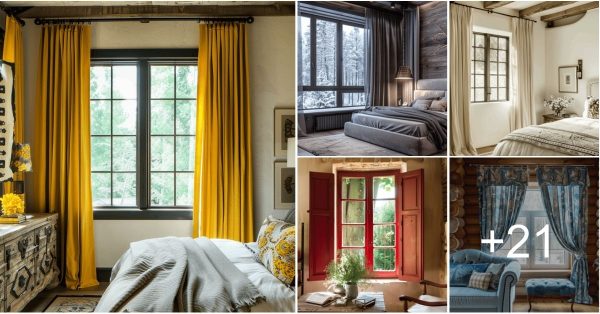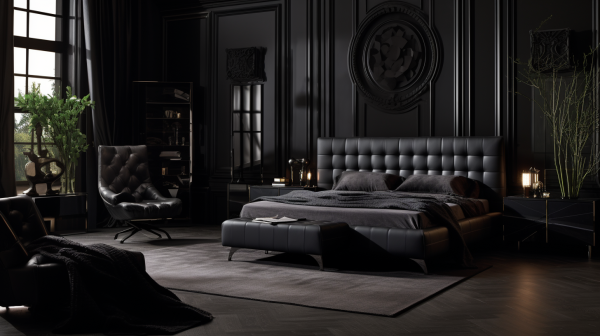Are your sliding doors letting in too much outside noise? Or are you worried about disturbing the neighbors with the loud sounds coming from your home during the day or at night? If you are, you've come to the right place. We have researched sliding doors and whether or not they can block sound. In this post, we will go over these details.
Your average sliding doors aren't well equipped to block sound, as they are typically made with thin but tempered glass. However, if you install soundproof sliding glass doors or sound dampening materials, you can reduce sound by up to 70% or more. For example, you can install tempered laminated glass to reduce the amount of sound transmitted through these doors.
If you are looking to block noises entering or exiting your home through your sliding doors, there are definitely ways to do it. The first thing that you should do is come up with a budget. This will determine whether or not it's best for you to replace the doors with thicker soundproofing glass or simply seal them and install soundproofing materials over them. Continue reading to learn about some of these options.
![A glass sliding door of a two story house leading to the garden, Do Sliding Doors Block Sound? [And How To Soundproof Them]](https://homedecorbliss.com/wp-content/uploads/2021/11/Do-Sliding-Doors-Block-Sound-And-How-To-Soundproof-Them-683x1024.png)
Ways To Soundproof Sliding Doors
Place sealant on the gaps in the doors
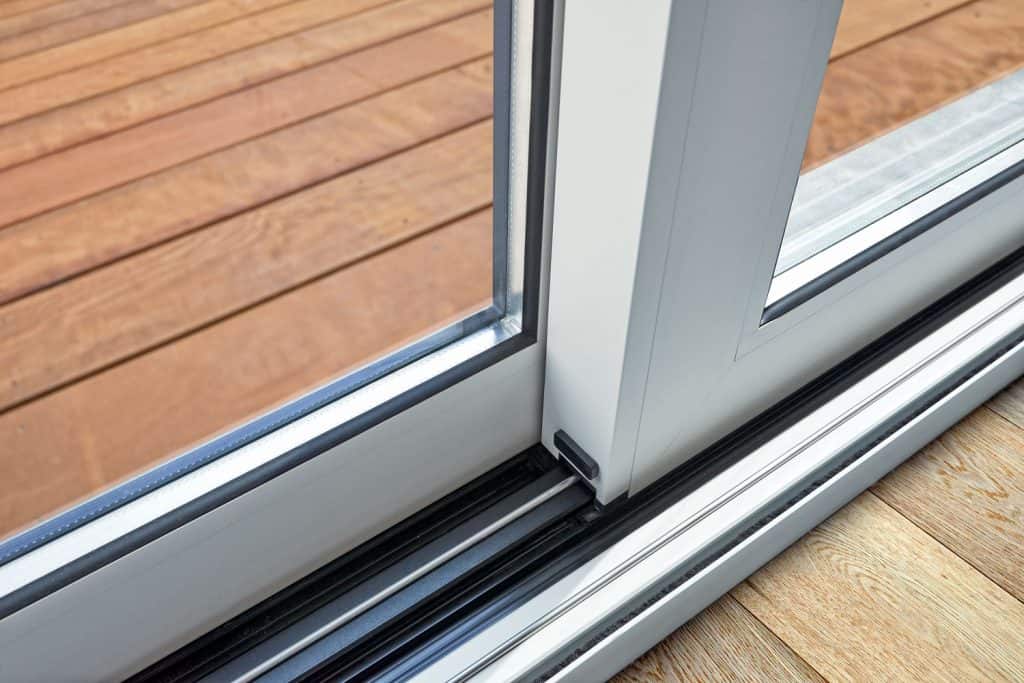
We may include affiliate links and curated AI content to highlight top design styles.
One of the best ways to reduce the sound entering or exiting your home through the doors is to apply sealant around them. You'd be surprised at how much sound can be transmitted through the smallest cracks and holes in the doors.
Use weatherstripping
Weatherstripping is one of the best materials that you can use to create an airtight seal between the door frame and the glass. You can use a brush weatherstrip so the bristles will bend as the door slides from side to side.
This will prevent the stripping from being ripped out, and it'll also keep out cold drafts in the winter months.
Read more about this weatherstripping on Amazon.
Install a bottom door sweep
A good door sweep can also help to block any sound from the bottom of the doors. These door sweeps are installed on the bottom of the door covering the entire gap between the floor and the door—and they come in various levels of thickness.
Depending on the type of sliding door you have, you may need to cut the door sweep to fit, as one that's too large can make it challenging to close the door.
Learn more about this door sweep on Amazon.
Apply acoustic caulk
You can also use caulk to cover any gaps or holes around the sliding doors. And if there is extra space between the door and the frame, caulk can be applied in this space. Also, check for any damaged areas in the door frame that may need sealing—this is another area where caulk can be used.
Place acoustic curtains on the doors
Acoustic curtains are another great option that you can use to reduce the amount of outside noise entering your home. The cool thing about them is that they can be decorative. They even have thermal benefits, which may help you save money on the energy bill.
The only downside is that they may block the sunlight during the day, which can be disadvantageous if you prefer to be in a room with an abundance of natural light.
Find acoustic curtains on Amazon.
Use acoustic blankets and panels
You can also install acoustic panels and blankets on the sliding doors. The method for installing these may vary depending on the size of the doors and the material you use, but it's helpful. If you install the blankets on top of the doors' frame, it's best to use strong tape to prevent the blankets from falling off.
Or, you can nail them to the frame. But if you plan to install acoustic panels directly on the doors, you'll want to consider a tape or adhesive that'll be light enough to remove without possibly damaging the door.
Read more about these acoustic blankets on Amazon.
Replace the sliding doors
Sometimes, it may be better to replace the sliding doors. You can install double or triple-paned glass or laminated doors instead. The triple-paned glass will be the most expensive option, and laminated doors will typically be the least costly.
All options can significantly reduce the noise entering and exiting the home, and you won't need curtains to cover the doors. You can find various types of glass at most hardware stores, or you can find soundproofing equipment online.
Install MLV (Mass-loaded Vinyl)
Mass-loaded vinyl is a thick vinyl-based soundproofing material that can help to insulate doors, walls, and floors. Keep in mind that this material is particularly heavy, so the best way to install it will be to use nails or screws.
This means that you may need to either install the material to the top of the sliding door frame or build an additional frame for the insulation. You can also sandwich the material using rigid foam insulation or fiberglass batts to make for the ultimate soundproofing door.
Why is my sliding door noisy?
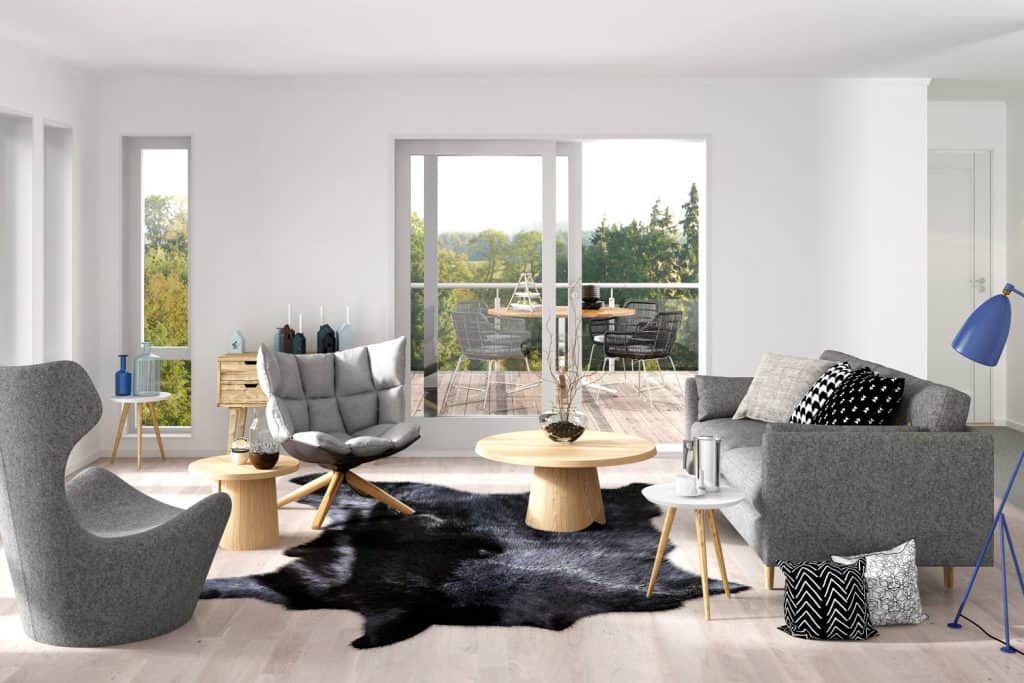
A noisy sliding glass door usually develops from track problems beneath the door. Here are the most common reasons why this may occur and how to mitigate the issue.
The track is obstructed
If the door is hard to move or seems a bit stiff and noisy, chances are that it is being obstructed. Try examining the track on the door to see if there are any objects or debris blocking it.
The tracks are worn out
If you hear a scraping sound when the sliding door is moved, chances are that the tracks or rollers have become worn out. This is common in sliding doors that are over ten years old and are used frequently.
Tracks can easily be replaced or lubricated if they are on the dry side. If it's a metal-against-metal type of scraping sound, it's likely that this is an issue.
The tracks are bent
And then there are cases where the door tracks can become bent from damage. This usually happens when the doors are repeatedly opened too fast, too aggressively, or when heavy furniture is moved over them.
Take a close look at the tracks and use a straight object such as a ruler, leveler, or thin book to determine if the tracks are bent in any way. If they are, it's best to either replace them or straighten them manually.
What type of door is most soundproof?
Typically, the doors that offer the best soundproofing are those that have a solid interior. Most doors are hollow or made with softwoods, which aren't great for soundproofing. The airy and thin surface of these doors allows a good amount of sound to pass through them.
However, if you have a door that is made of laminate, thick solid material (such as metal or wood), or multiple panes, it will undoubtedly allow less sound through.
If you're looking to purchase a soundproof door, be sure to note the Sound Transmission Class rating. This classification will let you know how well the door transmits sound. It's best to find a door that has a transmission rating of at least 30.
How much does a soundproof door cost?
A soundproof door can range anywhere from $250 to well over $500. The cost depends on the material of the door and the level of soundproofing that it offers. This is why many homeowners prefer to create their own soundproof doors instead.
For example, instead of paying over $500 for a brand new door, you can opt to spend less than $100 for soundproofing materials, including rigid foam panels, mass-loaded vinyl, sealant, soundproof curtains, or thick, dense blankets.
Wrapping Things Up
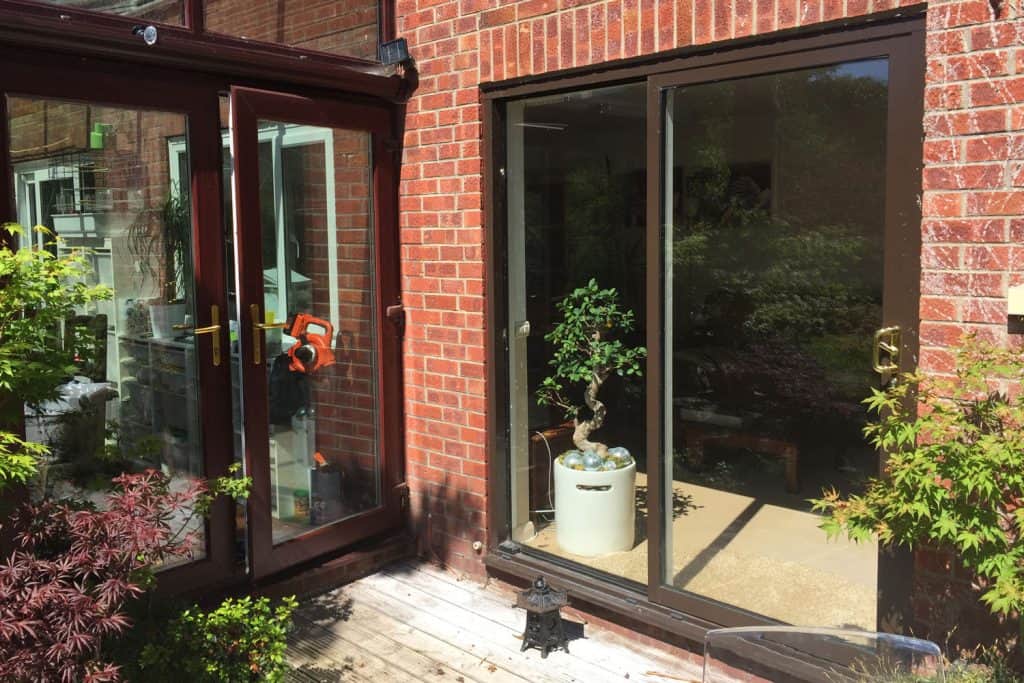
As you can see, there are several options available to soundproof your sliding doors as well as other doors in your home. As mentioned previously, the best thing to do is first determine your budget for the soundproofing project.
The great thing about soundproofing your own home is that it's a fairly simple project, and many of the materials can be purchased inexpensively. However, if you plan to buy a soundproof door, be sure to look at the sound transmission rating to determine how well it's able to reduce sound.
Before you go, be sure to check out our other posts:







